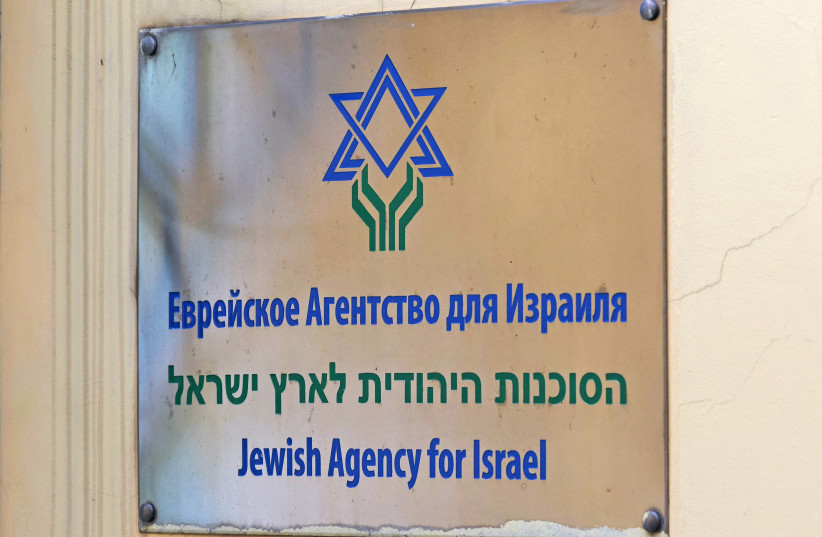The meeting between the Israeli delegation sent to Moscow and Russian officials from the Justice and Foreign ministries hit a dead end regarding the status of the Jewish Agency in Russia.
Diplomatic sources familiar with the meeting have told The Jerusalem Post that “the meeting took place on Monday morning between public servants and not with the political echelon that actually makes decisions. Therefore, as expected, the meeting was very technical and discussed the legal implications of the Russian privacy laws.”
The official explained that “the hope was that the Russians would give a hint towards a direction that would help the Israelis understand what can be done in order to save the Jewish Agency in Russia from liquidation. Unfortunately, it didn’t happen.” No further meetings were scheduled and no decisions were made.
“If there is any chance to advance the issue of the agency in a positive direction, it can now only happen on a diplomatic or political level,” the diplomatic source said, and suggested that “an Israeli leader such as President Isaac Herzog, Alternate Prime Minister Naftali Bennett or Prime Minister Yair Lapid can possibly affect the situation.” Herzog hinted that he is involved behind the scenes, but would not specify if he was actually in dialogue with the Kremlin.
"An Israeli leader such as Herzog, Bennett or Lapid can [positively] affect the situation"
Diplomatic source on Russia's crackdown on the Jewish Agency

“The only thing we can do now is wait for the trial on August 19. There is no basis for hoping that the trial will be fair and professional, but you never know,” the diplomatic source said.
Prior to the Israeli delegation’s meeting, Israeli Ambassador to Russia Alexander Ben Zvi met with Deputy Foreign Minister Mikhail Bogdanov on the same matter. According to Israeli sources, Bogdanov is the one who asked for the meeting.
Moscow’s Basmanny Court began considering a lawsuit on Thursday, which was filed by the Russian Justice Ministry concerning the liquidation of the Jewish Agency office in Russia. The court hearing was set for August 19, and Thursday’s session was considered a preliminary hearing; pre-trial verification ended without any decision being made.
The delegation is headed by Tamar Kaplan, Foreign Ministry deputy legal adviser. Its members include David Goldfarb, director of the Foreign Ministry’s Department of Diplomatic and Civil Law; Roi Cohen, assistant legal adviser to the government; Dror Offen, chief of staff of the Aliyah and Integration Ministry; Michal Shetrit, legal adviser to the Aliyah and Integration Ministry; and Reuven Eidelman, legal adviser to the Privacy Protection Authority. Representing the agency is Shay Felber, director of the Jewish Agency’s Aliyah and Absorption Unit.
Jewish Agency crackdown: The story thus far
The Russian government has ordered the Jewish Agency to cease all operations inside the country, the Post revealed last month. The order was given in a letter from the Russian Justice Ministry. Officials in the agency confirmed that the letter was received and later also acknowledged that there was a threat of liquidation of the organization.
Two weeks ago, Russia expanded its definition of “foreign agents,” and it will now include “those who take part in any activity that authorities determine goes against Russia’s national interests or who receive support of any kind, not just money, from abroad,” according to The Moscow Times. In this case, Jewish representatives from the Jewish Agency or representatives of international Jewish organizations may be categorized as “foreign agents.”
According to The Moscow Times, the new law states: “Anyone who has worked with a ‘foreign agent’ or received funding from one will be included in a new Justice Ministry list of people and groups ‘affiliated with foreign agents.’”
